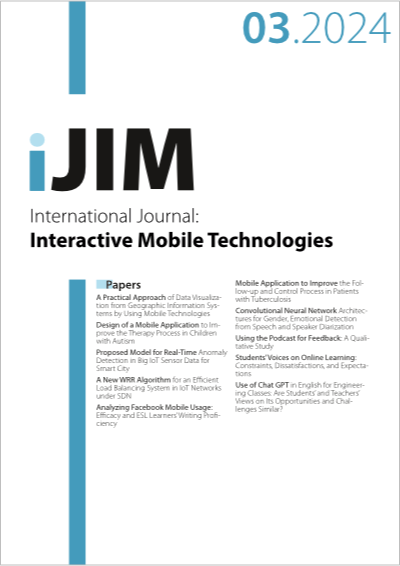Convolutional Neural Network Architectures for Gender, Emotional Detection from Speech and Speaker Diarization
DOI:
https://doi.org/10.3991/ijim.v18i03.43013Keywords:
Deep learning, gender recognition, speaker diarization, voice recogni-tion, and emotional speech.Abstract
This paper introduces three system architectures for speaker identification that aim to overcome the limitations of diarization and voice-based biometric systems. Diarization systems utilize unsupervised algorithms to segment audio data based on the time boundaries of utterances, but they do not distinguish individual speakers. On the other hand, voice-based biometric systems can only identify individuals in recordings with a single speaker. Identifying speakers in recordings of natural conversations can be challenging, especially when emotional shifts can alter voice characteristics, making gender identification difficult. To address this issue, the proposed architectures include techniques for gender, emotion, and diarization at either the segment or group level. The evaluation of these architectures utilized two speech databases, namely VoxCeleb and RAVDESS (Ryerson audio-visual database of emotional speech and song) datasets. The findings reveal that the proposed approach outperforms the strategy level in terms of recognition results, despite the real-time processing advantage of the latter. The challenge of identifying multiple speakers engaging in a conversation while considering emotional changes that impact speech is effectively addressed by the proposed architectures. The data indicates that the gender and emotion classification of diarization achieves an accuracy of over 98 percent. These results suggest that the proposed speech-based approach can achieve highly accurate speaker identification.
Downloads
Published
How to Cite
Issue
Section
License
Copyright (c) 2023 Thaer Taha, Mondher Frikha

This work is licensed under a Creative Commons Attribution 4.0 International License.


